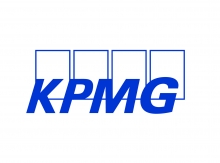Report Summary
Global Manufacturing Outlook is a KPMG International report that investigates how industrial manufacturers are adapting their business models and supply chain tactics to address the ever-changing global economic context. This report was produced in co-operation with The Economist Intelligence Unit, which also executed the online survey and conducted the interviews on behalf of KPMG.
As a result of the downturn, manufacturers experienced a relatively short, very sharp shock, followed by a quick rebound in demand aided by substantial government spending worldwide. Despite cautious optimism for a lasting recovery, significant uncertainty about the future remains, especially as stimulus programs tail-off. Recent leading indicators point to a slackening in demand – and perhaps worse.
This study, produced in collaboration with the Economist Intelligence Unit, surveyed 196 senior executives worldwide to understand how the supply chains of industrial manufacturing firms are shifting as a result. The overall picture is not one of revolutionary change toward a commonly accepted, new set of best practices. Rather, many companies are experimenting with a range of approaches. Some of these may not stand the test of time. Given, however, the standing of the companies studied – all have annual revenues of over US$1billion – those innovations that prove their value are likely to shape the sector's supply chain strategies in the years to come. Among the survey's key findings are:
Strategic suppliers are increasingly becoming partners rather than purveyors of goods and services. Many companies are looking for fewer, longer-term supplier relationships, and more than half plan either to collaborate more closely with suppliers on – or give responsibility to them for – product innovation, product development, research and development (R&D), cost reduction, and supply chain agility. Interviewees suggest that building closer relationships was worth the price of helping suppliers financially during the downturn.
Management of supplier risk has become more hands-on as a result of the downturn, but by avoiding certain risks, companies may be losing out. The recession has also caused companies, as one interviewee puts it, "to sharpen our pencils" on supplier risk. In some areas, however, the tendency seems to be to avoid potential problems altogether, or diversify around them, rather than to understand the risk. This can mean companies lose out on opportunities, such as tapping into the research potential of China.
The geography of sourcing, a combination of the global and the local, is in flux as companies consider the appropriate link between customer and supply chain location. Low-cost country sourcing remains the priority for most supply chains, with China as the big beneficiary. While expected geographic shifts within supply chains are largely cost-driven, a significant minority of companies expect them to more closely reflect consumer markets in the future.






